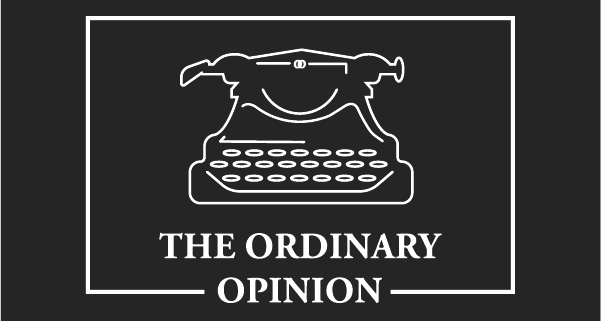A believer cornered me on the train the other day.
He’d seen the book I was reading, on the subject of how the worlds around us came to be; an account – penned by one of the world’s leading scientists, by the way – which I find entirely plausible if not probable once you accept the facts around us as observed by science and logic.
I knew he was going to walk over. He’d been staring at me, and my book, ever since he’d gotten on the train about three stops before, around Times Square. I couldn’t tell if the look on his face was pity or satisfied superiority, as though he’d seen “lost sheep” like me before, and knew just how to shepherd me back into the fold. Or pen.
When he sat down in front of me, I immediately regretted my choice in literature. I wanted to mount the first attack (best form of defense and all that), but he’d have been expecting my “we don’t want any” defensiveness. It would’ve only encouraged him to use something he’d been taught in his evangelism classes. So I said nothing. He didn’t give his name.
He said he had a question for me, and I considered pretending I hadn’t heard. It’s a noisy train, the 2. But then he repeated that he had a question, this time waving his hand between my face and my book. Not very sanctified, if you ask me. I asked what the question was.
He asked if I believed everything I was reading. I paused to consider this; not because it was a hard one, but because no one ever asked me that while I read one of my other books. Whenever I had Dawkins or Hitchens on my lap, people mostly left me alone, as though satisfied those signified I was a soul beyond redemption. Christopher Hitchens – a personal favorite – is particularly aggressive about this whole thing.
I said no, which was the truth. I didn’t believe everything in the book. It answered a lot of questions about my sense of reality, in a way that religion just doesn’t. He asked me what I thought was missing.
I said I had no idea. But that I was okay with that.
He told me that was fine, and that the fact that I didn’t believe all of it was already a good sign.
Sign of what, I asked.
That even though I was looking in the wrong place, deep inside I hungered for truth, and would find it if I let go and opened my mind and heart a bit.
This is where – I assumed – he would supply me with truth. Fill my hunger.
He told me about his faith. It was one of love, forgiveness, and acceptance. His fellow believers came from all walks of life, and all sorts of histories and backgrounds. There were muslims, buddhists, hindus, and at least one rastafarian who has turned from their old ways and become believers like him. His “church” was a bit non-traditional: the didn’t gather every single week, but when they did, it was typically on Sundays or Saturday evenings, like many other churches I know of. Teachings centered on the meaning of life; finding one’s purpose; inner peace; accepting yourself; love, and loving all those around you; compassion. He used the phrase “come as you are” at least 3 times as he talked me through his congregation’s willingness to accept people no matter what their prior beliefs. There was no judgment, no condemnation.
He spoke to me about the beginning of the world, and of time. He spoke, intensely, about how it all began, from the tiniest speck of dust to everything we see around us, woven by Laws immemorial. I asked if he could prove any of it; he said no, but that the universe around bore witness to the very glory and intent of its own creation. As he spoke of the “Laws” and the “Universe,” and a story of creation that I could *just* wrap my head around but could in no way prove, I could tell he was trying really hard not to say “God,” perhaps not to scare me off too quickly. He said that -if I let it – his faith will fill the void in my heart, and answer the questions I’d been asking myself every time I found the answers in my book unsatisfying.
I asked him what his gatherings were REALLY like, because I’d heard that sometimes they got together and did some weeeeeird stuff. He told me not to focus on outliers; bad actors and weirdos shouldn’t represent and didn’t corrupt the truth of his faith.
I, a learned man, wasn’t too impressed. I had my own beliefs, a lot of them supported by the book that had originally caught this man’s attention. I told him that I too had a belief system that was working for me. I told him about my small group of friends, and how we hung out, usually on Sundays.
I told him we were also all about love, acceptance, and forgiveness of all people. I told him about our sermons on purpose, and inner peace, about accepting yourself and loving your neighbors. We let people come as they were or would ever be too.
I told him about our beliefs around creation. I spoke about evolution and how that fit in. I told him I couldn’t prove any of it, but believed it anyways. I spoke about how the heavens and the earth declared the absolute glory of their creator. I told him I was really glad to hear his faith had no judgment, and that mine didn’t either. As I got more and more animated, the Bible in my hands was getting a bit heavy. I closed it and put it away. I asked him to come to church with me.
The true believer said no. He’d stopped going to church in college, after experiencing the freedom of no one telling him what he could and couldn’t do. Besides, he’d heard that people in church do weird things like close their eyes and lift their hands up and pretend to communicate with a still small voice inside themselves. It was crazy, he said. Crazy like meditation, i said.
“Yeah,” he said “except at least we aren’t brainwashed like you all.” “I can’t believe people are still stupid enough to believe that shit.”
Then he stood up and left. I sat there for a while, taking in the irony of it all. Steadfast in his beliefs. Bold in his evangelism. Aggressive in his take-downs of the unfaithful, part-pity-part-condescension.
*sigh*
Athiests might be the truest believers of all.



